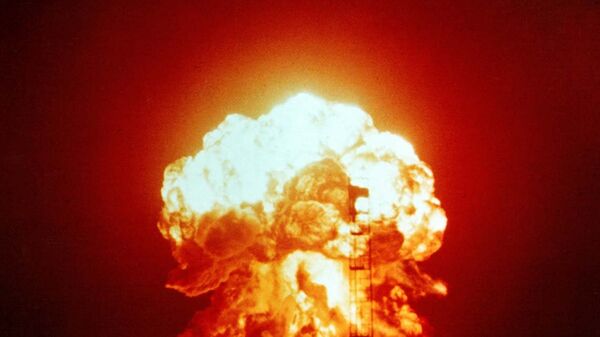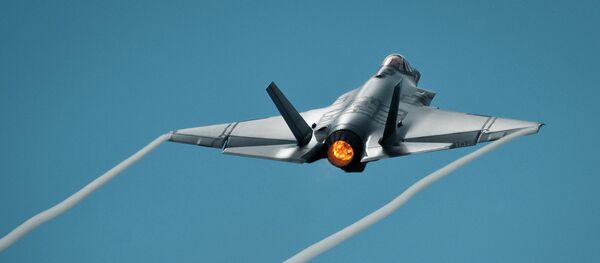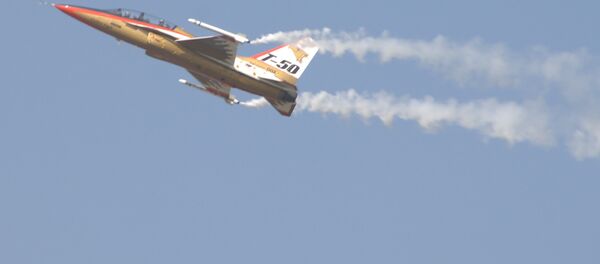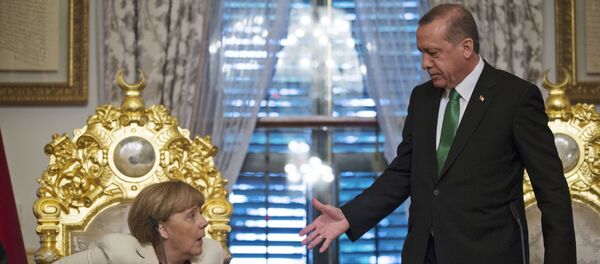On Friday, 13 NATO countries deployed 10,000 troops to participate in military drills in the Baltics along Russia’s Eastern border, in an effort concurrent with a separate round of war games in Poland amidst growing tensions between the United States and Russia.
The latest round of American-led saber rattling comes ahead of an even more pronounced military exercise announced for July. The Anaconda war games will include 31,000 troops replete with tanks, aircraft, artillery units, and missile defense systems. Some have suggested Anaconda may be a prelude to a Western invasion of Russian territory.
The Anaconda war games will take place in July along Poland’s border with Russia, and will see battalions of German troops in the country for the first time since the Nazis used Poland as a pathway to invade Russia during World War II.
International analysts worry that the US military commentariat has once again been taken over by Cold War-era hawks looking to re-inflame tensions between East and West. In addition to military exercises along Russia’s border, Americans have introduced a missile defense system in Romania and have begun the construction of a separate system in Poland. Further, the Obama Administration approved a four-fold increase in defense spending to "protect" the Baltics from "Russian aggression."
Russia’s President Vladimir Putin has scoffed at American notions that the Baltics and Poland need to be protected from Moscow, saying the idea that Moscow would order an invasion of a NATO country is "the type of thing that only a crazy person thinks, and only when dreaming."
Are Americans positioning themselves for a World War III, or are they using an irrational fear of Russia to justify subsidizing the country’s increasingly powerful military-industrial complex with taxpayer money?
Loud & Clear’s Brian Becker sat down with international affairs analyst Mark Sleboda to discuss the latest round of war games on Russia’s doorstep, and whether it risks sparking a global conflict.
What is the nature of the war games in the Baltic region?
"These war games are a part of a series that NATO, in conjunction with their deterrent strategy and readiness action plan (RAP), uses to test out their new, vaunted spearhead force that military officials in NATO had determined is not actually ready for combat," said Sleboda.
"The Baltic war games will be concurrent with military war games in Poland where there are another 1500 troops," said the analyst. "This is coming just two months before the beginning of July when the War Games Anaconda 2016 will be conducted – the largest war games that NATO has held since the end of the Cold War including over 31,000 troops including hundreds of tanks, aircraft, missile defense, and artillery units."
The international security expert explained that the Baltic, Poland, and expanded Anaconda 2016 war games (also in Poland) will be conducted right on the border of Russia, which he calls, "an across the board, big saber rattling against Moscow."
"This is extremely threatening to Russia," said Sleboda. "There is always the concern, regardless of how unlikely the scenario is, that war games have traditionally been used by great powers as a pretext to launch a full-scale military invasion and while the chances of that happening are infinitesimally small, the Russian military now has to take that potential into consideration at a time of heightened tensions."
What is driving this series of War Games?
According to Sleboda, domestic politics in the Baltic States and Poland play a substantial role in the latest round of aggressive chest-beating.
"Russophobia is a guaranteed vote getter that creates the enemy outside so the people forget the failures of their domestic government," he observed.
"There is also the anti-Russian hysteria advanced by the military-industrial complex, especially the Rand Corporation scenarios of a Russian attack on the Baltics, that finds Russian forces could overrun the region in two days," said the analyst. "What they don’t explain is that NATO has spent 11 times the Russian defense budget and would quickly turn back any advance into the Baltics immediately."
"The Russian leaders are not stupid or suicidal," pointed out Sleboda. "In the case of a conventional war between NATO and Russia in the Baltics, it would quickly go nuclear as Russia would be forced to defend itself, and Moscow has absolutely no interest in that."
Sleboda believes that the renewed Western narrative of Russian aggression began as a means to justify a US-backed coup in Ukraine in 2014. He explained that the new regime, installed by Western interests, waged war on the eastern half of the country that refused to accept the regime change, and the United States rushed to "cast this in the light of Russian aggression."
"It is not that Russia is responding to what NATO has done with their expansion into Ukraine by blatantly interfering to geopolitically flip the country and supporting a regime that unconstitutionally took power in violation of US and international law – it is quite a coup, actually," said Sleboda. "They have to defend this by casting Russia not as reacting to what happened, but rather as an aggressive imperialist power that must have designs on Poland and the Baltics."
"Western politicians and military brass become victims of their own propaganda cycle where they start to feed into this created hysteria of Russia as an aggressor and it builds and builds in cycles and I think they begin to believe in their own propaganda."







